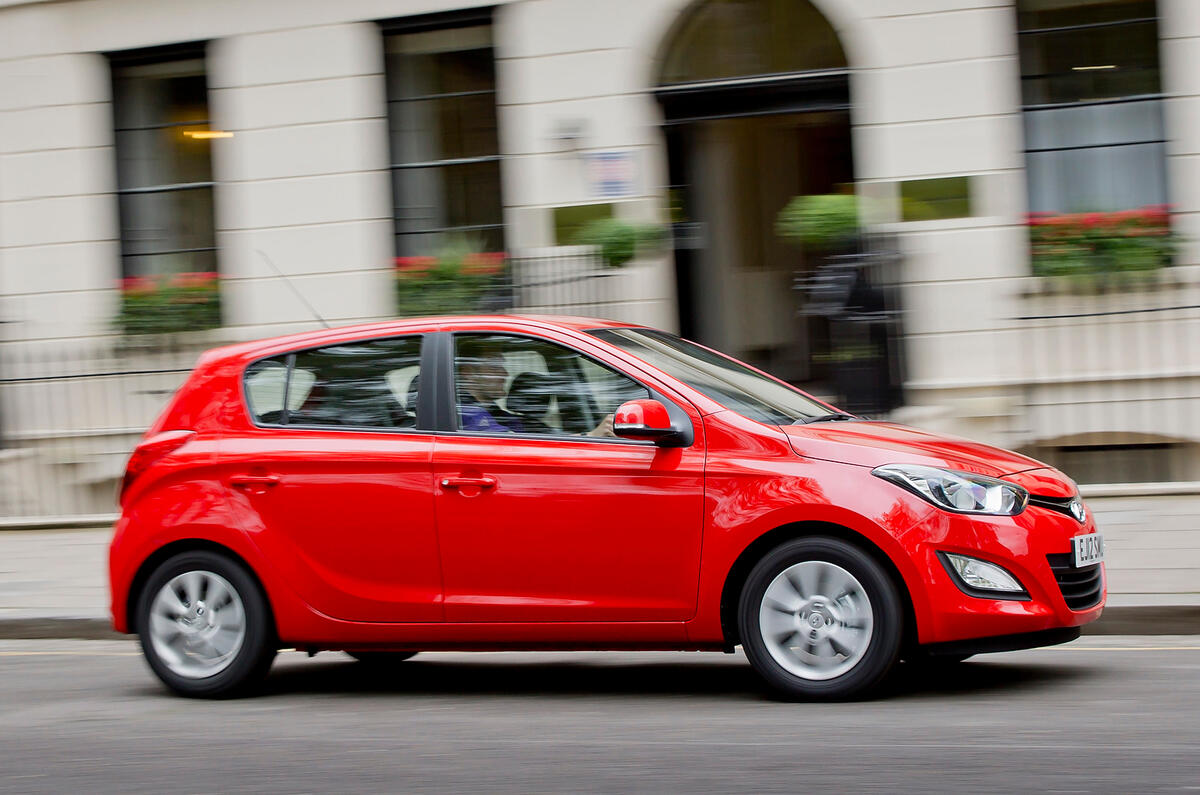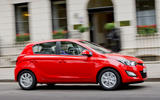The i20's base 1.2-litre engine delivers its peak 84bhp at 6000rpm and 88lb ft of torque at 4000rpm. That's enough to haul the little Hyundai from zero to 60mph in 12.7sec – less than a second shy of the time we recorded in a 1.4-litre Fiesta. But above 60mph, acceleration tails off noticeably.
The accessible torque peak makes for decent in-gear performance. Indeed, the i20 is actually pretty sprightly: 40-60mph in fourth gear takes 10.9sec, against 11.8sec in the Fiesta 1.4. The Hyundai is also quicker to dispatch 50-70mph in fifth gear, its time of 17.1sec comparing well with the Ford’s 21.8sec.
Braking performance is less impressive. The pedal is slightly over-assisted, and there isn’t enough retardation. The stopping time from 60mph is 2.95sec in the dry and 3.3sec in the wet – the latter being nearly half a second slower than the Ford Fiesta.
The i20's top-spec petrol engine is a 99bhp 1.4-litre unit. Despite the extra power and torque (101lb ft) it doesn’t feel that much quicker than the 1.2 version. The official 0-62mph time is 11.6sec and the top speed is a claimed 112mph. Unlike the base petrol unit, the 1.4 can be specified with a six-speed manual or four-speed auto. The latter adds 1.3sec to the sprint to 62mph.
On the diesel front, there’s a 1.4 with 89bhp. The range-topping engine is a grumbly enough thing at idle, although you hear it less once you’re at speed; not that there's much of that - it takes 13.5sec to reach 62mph. Two versions are offered with this engine: the Blue Drive variant cuts emissions.


























